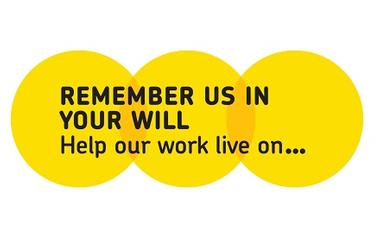Remember A Charity has launched a new three-year strategy and said it aims to grow the donor market and normalise legacy giving.
The consortium was formed in 2000 to act as a representative voice on legacy issues and campaign to create a positive environment. It is hosted by the Institute of Fundraising.
In its new strategy it said it is on track to reach its long-term aim of reaching 18 per cent for the percentage of charitable estates "at probate" by 2021 and that over the next three years will focus on addressing the "current disconnect among those who are aware of legacy giving and those considering it".
The percentage of people who claim to be unaware has fallen from 17 per cent in 2009 to 10 per cent in 2018, Remeber a Charity said.
It said plans to carry out more consumer awareness initiatives, government lobbying and ensuring legal advisors encourage clients to leave funds to charity.
The strategy also sets out a new focus on identifying trigger points to encourage legacy giving when people plan their retirement and at the pension planning stage.
New research
Its strategy has been underpinned by new research into the trends in legacy giving.
The UK Legacy Fundraising Market 2019 report shows an increase in the number of charities benefiting from legacy giving.
Rob Cope, director of Remember A Charity, said: “The donor market is clearly growing with a long-term shift in the proportion of estates that include a charitable gift.
“But with rapid expansion in the legacy fundraising marketplace and more charities at the table, the question is whether charities will start to feel the squeeze.”
Health charities receive the most from legacies
The report shows changes in public preferences for the types of organisations being named in wills.
Cope said: “Our research shows that legacy income is being stretched across a broader marketplace and that some markets are more likely to feel the pinch than others."
Health charities continued to secure the largest income share from legacies, at 42 per cent in 2017 and overseas aid, environmental and services charities are starting to draw a larger share.
Religious charities and social care are starting to lose out on legacy income market share.
Cope said: “While the biggest UK-wide charities have long dominated the sector and continue to be hugely successful with legacies, they don’t have the monopoly.
“Today’s legacy market is proving more accessible than ever, with many new and smaller charities fundraising for legacies and changing the overarching shape of the market.
“Our challenge now is to increase the pace of growth of the donor marketplace and ensure that there is greater scope for every fundraising charity to benefit from gifts in wills.”
Charities in Wales and Scotland saw higher growth
Professor Cathy Pharoah, visiting professor of charity funding, Cass Business School, who co-conducted the research, said: “Across all parts of the UK, legacies continue to be the largest single source of fundraising income, from 31 per cent of giving to UK-wide national charities to a quarter of giving amongst Scottish and Welsh charities.”
Welsh and Scottish charities grew more in legacy income than English charities and those with a UK-wide remit.
Charities in Wales saw legacy income growth of 35 per cent between 2007 and 2017 and 23 per cent in Scotland, while the UK average growth rate was 10 per cent.
The Welsh and Scottish legacy markets make up 4 per cent of the UK’s total legacy income.
The resilience of legacy income
The report considers new trends in legacy income to over 1,100 UK fundraising charities with an annual legacy income of £2.23bn and looks at the impact of the recession in 2008 and the recovery period that followed.
Dr Catherine Walker, director of The Researchery, who also produced the research, said: “This new research on long-term trends in UK fundraising charities' legacy income demonstrates the resilience of this form of planned giving as a way to support the causes the public cares about.
“Legacies made a strong recovery from the impact of recession as market values picked up again, with donors responding to new opportunities and appeals to make charitable bequests."
Cope said: “With the future impact of Brexit as yet unknown and economic instability predicted for some time yet, this reinforces the need for the sector to work collaboratively to grow the donor market, providing a more stable basis for this vital income stream for the years ahead.”
|
Related articles












